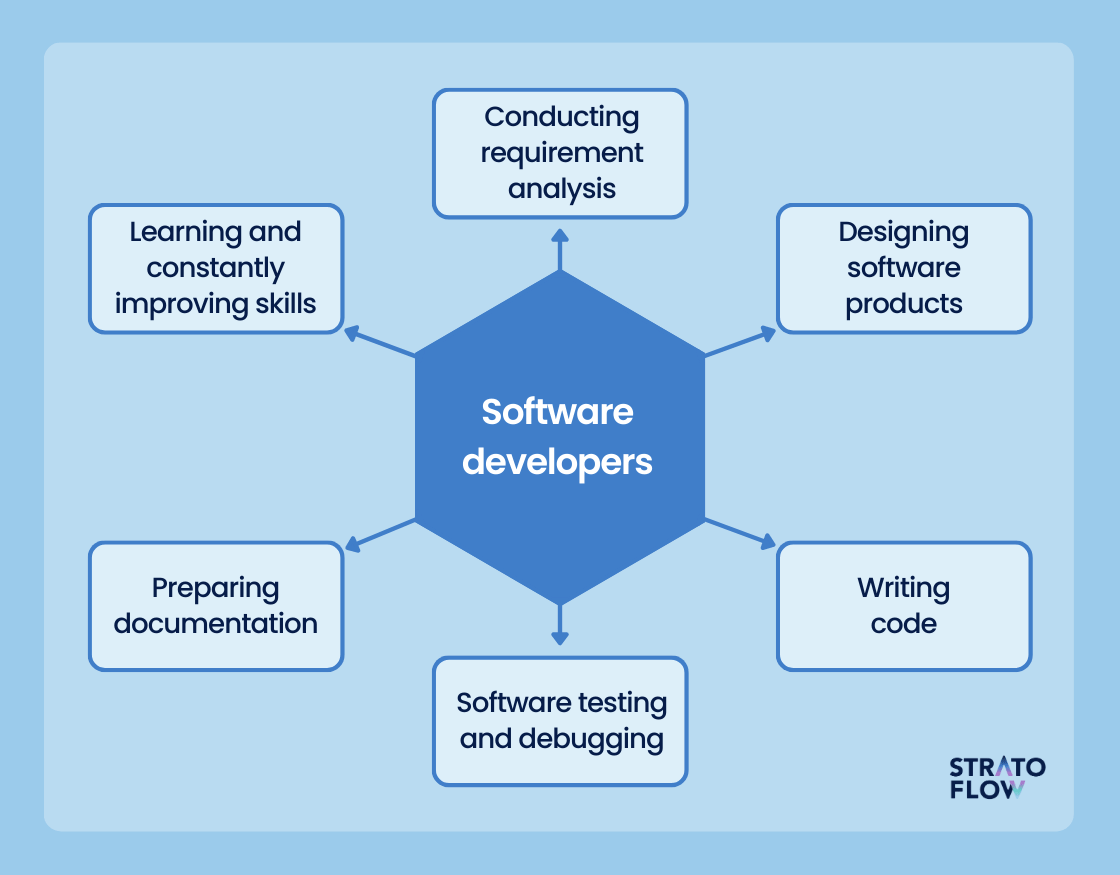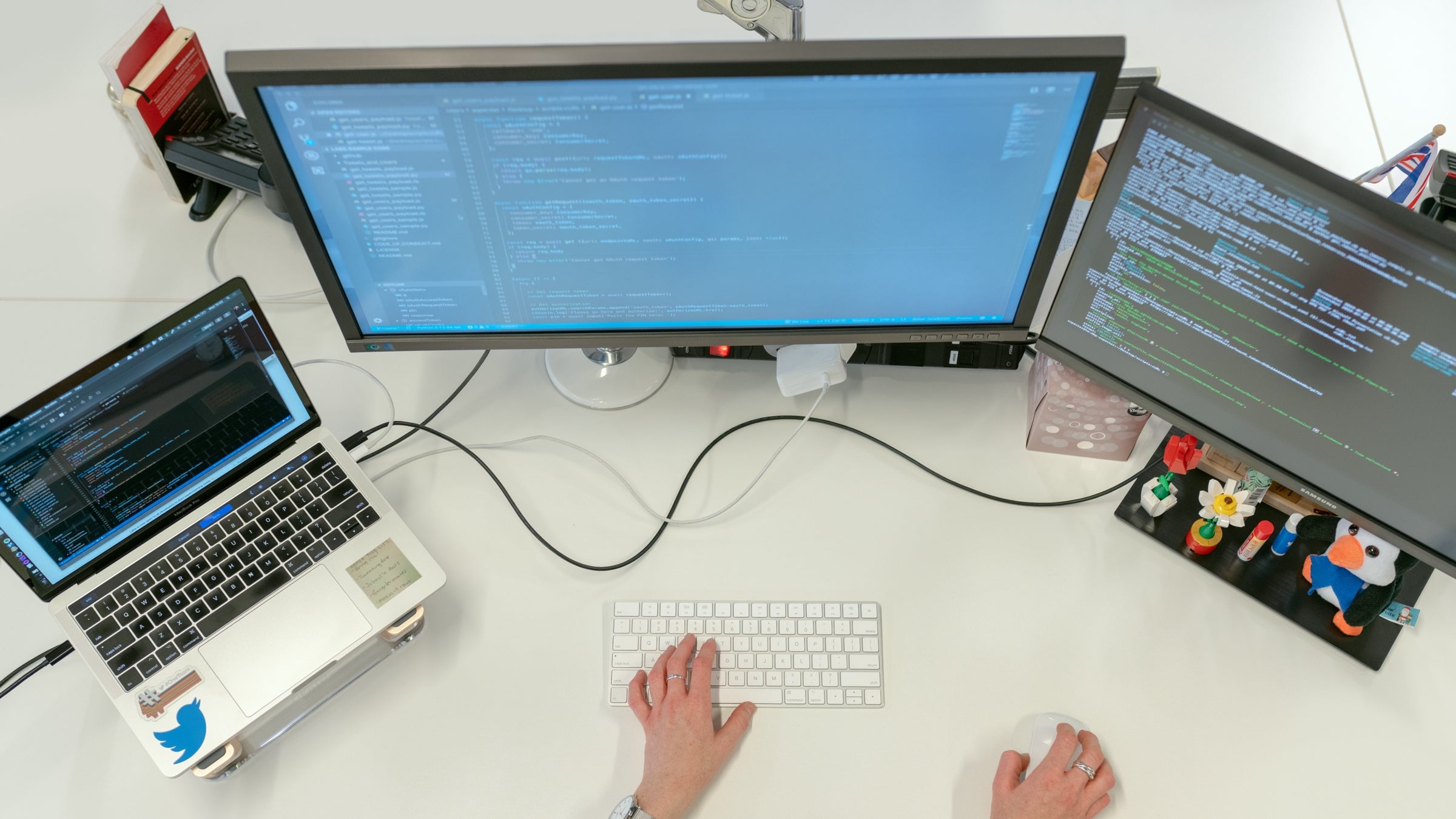Hire Dedicated Developers for Your Following Big Project with Confidence
Hire Dedicated Developers for Your Following Big Project with Confidence
Blog Article
Devoted Developers vs. In-House Teams: Which Is Right for You?
The decision in between making use of committed programmers and keeping an internal team is a significant one that can affect the trajectory of your projects and total company technique. Conversely, in-house groups add to a cohesive firm society and a nuanced understanding of long-lasting goals.
Understanding Committed Programmers
The growing demand for specialized abilities in the tech industry has actually caused the development of devoted developers as a practical solution for numerous organizations. These experts are generally gotten on a job basis, allowing firms to take advantage of specific proficiency without the lasting commitment linked with permanent hires. Devoted developers are usually embedded within a customer's team, giving versatility and scalability to fulfill project demands.
This version permits organizations to access a worldwide ability pool, which is specifically advantageous in a quickly evolving technological landscape. Committed developers can be sourced from different geographical areas, guaranteeing that firms can locate the best ability at competitive rates. They commonly bring a riches of experience and understanding, having actually worked with diverse jobs throughout various sectors.
Furthermore, specialized programmers can focus exclusively on the tasks available, boosting performance and efficiency. They are geared up to integrate effortlessly right into existing operations, collaborating carefully with internal groups to accomplish job goals. This strategy not just lowers the worry of employment and training yet additionally permits companies to stay active, adjusting swiftly to altering market demands and technological developments.
Advantages of In-House Teams

Additionally, internal teams have a tendency to have a deeper understanding of the company's mission, worths, and objectives. This positioning can improve worker engagement and motivation, as employee really feel much more connected to their job and the company's success. Furthermore, having a specialized in-house group permits much better positioning of objectives and strategies, as these participants are constantly focused on the company's top priorities.
Internal teams likewise facilitate quicker decision-making procedures, as they can respond extra quickly to challenges and changes. The well-known connections and familiarity with business protocols enable streamlined process and reduced miscommunication. Inevitably, the combination of a natural culture, positioning with organizational goals, and reliable communication makes internal groups a useful asset for lots of organizations, specifically those seeking to grow lasting growth and technology.
Cost Factors To Consider
When evaluating expense factors to consider, both in-house teams and specialized developers present unique economic effects for organizations. Engaging specialized programmers generally includes a pay-per-project or per hour rate design, which can be cost-efficient for businesses with varying job demands. This technique enables flexibility in scaling resources up or down, guaranteeing that business only pay for the services they need.
In contrast, in-house teams entail fixed costs, including salaries, advantages, and overhead expenses such as workplace and tools. While this version offers better control and prompt schedule of sources, it may result in higher long-term expenditures, specifically if the work does not validate a full-time staff.
Moreover, firms need to think about the hidden prices connected with recruitment and training of internal employees, which can better stress budgets. In some instances, the time and sources spent on taking care of an in-house group can interfere with the company's core company purposes.

Task Administration and Flexibility
Task administration and flexibility are essential aspects that influence the option between specialized developers and internal teams. Devoted developers typically provide a high level of flexibility, enabling ecommerce web developers companies to scale sources up or down based upon project needs. This dexterity can be particularly helpful for businesses experiencing rising and fall work or those seeking to innovate swiftly. Dedicated teams typically have actually established processes for resource managing projects effectively, leveraging details approaches like Agile or Scrum, which promote iterative progress and versatility.

Inevitably, the selection in between specialized developers and in-house groups rests on the preferred level of adaptability and the details job management needs. Firms need to examine their operational characteristics, job complexity, and source accessibility to identify which option aligns best with their critical goals.
Making the Right Choice
Choosing the best growth strategy-- internal teams or specialized developers-- calls for a mindful evaluation of various elements that align with a company's critical goals. On the other hand, internal groups can give much better continuity and combination with existing workers.
Next, assess your budget plan. Devoted designers commonly offer a cost-effective solution for temporary tasks, while internal teams might incur higher lasting expenditures as a result website interface design of incomes, benefits, and expenses prices. Examine the degree of control and collaboration desired; internal teams commonly foster more powerful interaction and positioning with company culture.
In addition, consider the moment structure. If instant results are necessary, dedicated programmers can be onboarded quickly, whereas developing an in-house group takes some time for recruitment and training. Ultimately, weigh the lasting vision of your organization. Investing in an internal team might produce much better returns over time if continuous advancement is vital. Eventually, the decision hinges on a thorough evaluation of these aspects, guaranteeing placement with your company's functional requirements and overall objectives.
Final Thought
In final thought, the choice in between dedicated designers and internal teams hinges on task demands and organizational objectives. Alternatively, in-house groups grow a cohesive society and deeper alignment with lasting goals.
The decision in between making use of committed developers and keeping an in-house group is a considerable one that can influence the trajectory of your tasks and overall business strategy.Project administration and adaptability are vital factors that influence the option in between in-house groups and specialized programmers. software development partner.In contrast, in-house teams might succeed in preserving a constant task management framework due to their knowledge with the organization's culture and long-lasting objectives. Committed developers typically provide an affordable option for short-term jobs, while in-house teams might incur higher lasting expenditures due to wages, advantages, and expenses costs.In conclusion, the choice between in-house teams and specialized programmers pivots on task requirements and business objectives
Report this page